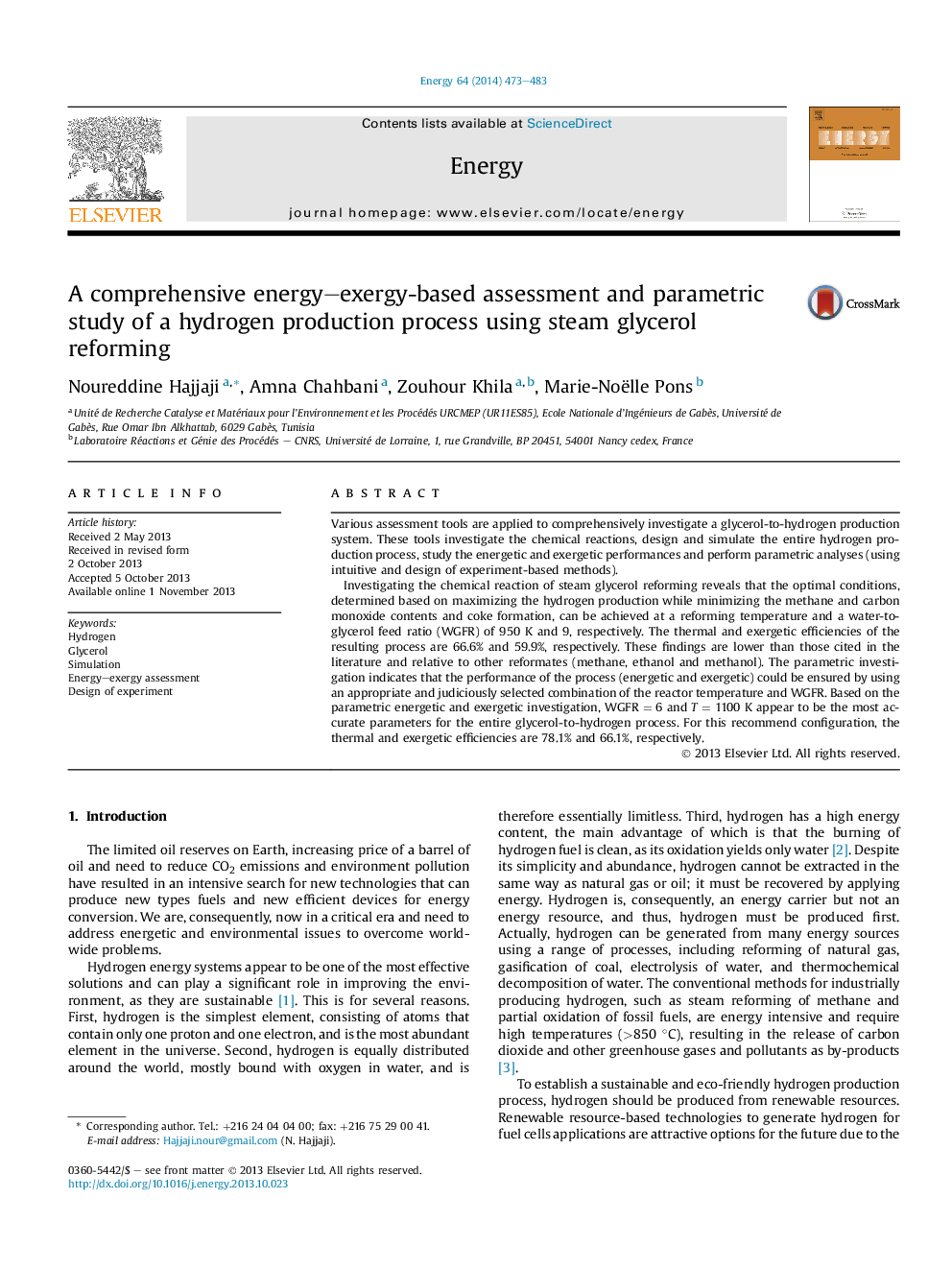| Article ID | Journal | Published Year | Pages | File Type |
|---|---|---|---|---|
| 8078753 | Energy | 2014 | 11 Pages |
Abstract
Investigating the chemical reaction of steam glycerol reforming reveals that the optimal conditions, determined based on maximizing the hydrogen production while minimizing the methane and carbon monoxide contents and coke formation, can be achieved at a reforming temperature and a water-to-glycerol feed ratio (WGFR) of 950Â K and 9, respectively. The thermal and exergetic efficiencies of the resulting process are 66.6% and 59.9%, respectively. These findings are lower than those cited in the literature and relative to other reformates (methane, ethanol and methanol). The parametric investigation indicates that the performance of the process (energetic and exergetic) could be ensured by using an appropriate and judiciously selected combination of the reactor temperature and WGFR. Based on the parametric energetic and exergetic investigation, WGFRÂ =Â 6 and TÂ =Â 1100Â K appear to be the most accurate parameters for the entire glycerol-to-hydrogen process. For this recommend configuration, the thermal and exergetic efficiencies are 78.1% and 66.1%, respectively.
Related Topics
Physical Sciences and Engineering
Energy
Energy (General)
Authors
Noureddine Hajjaji, Amna Chahbani, Zouhour Khila, Marie-Noëlle Pons,
